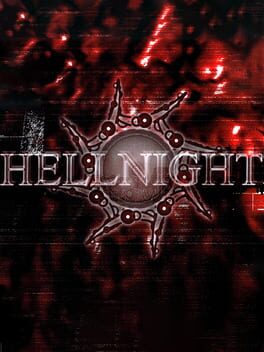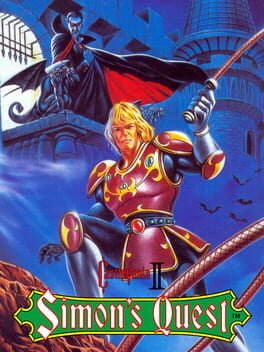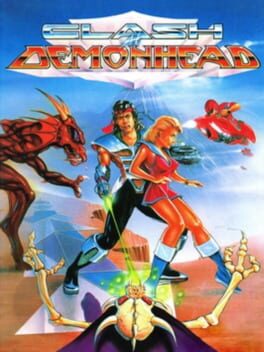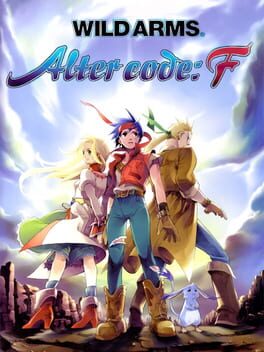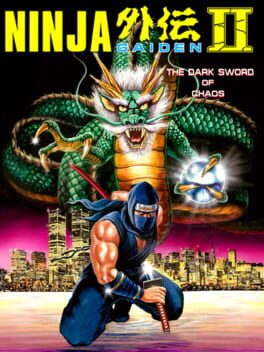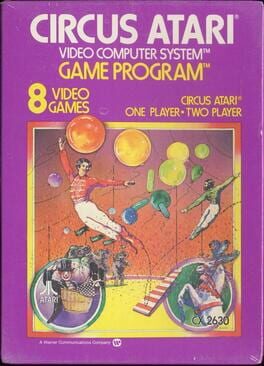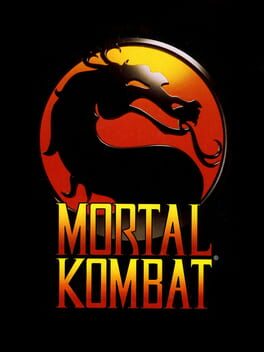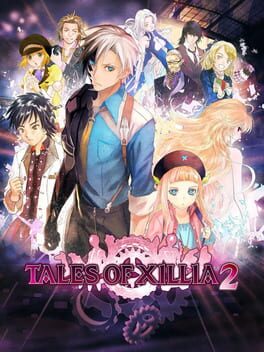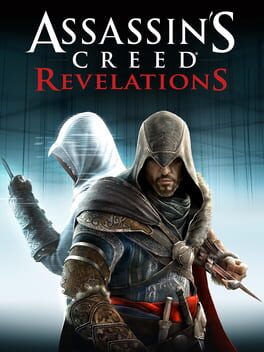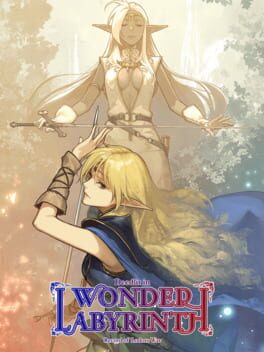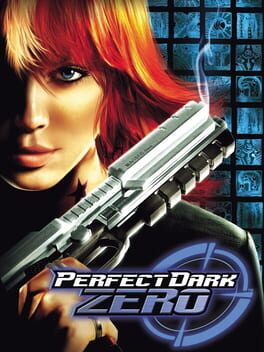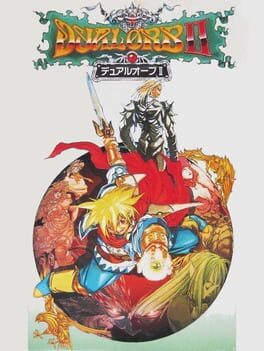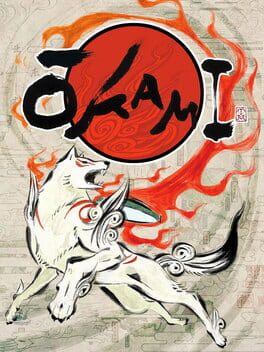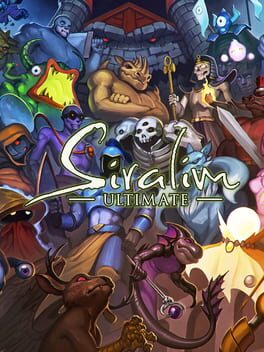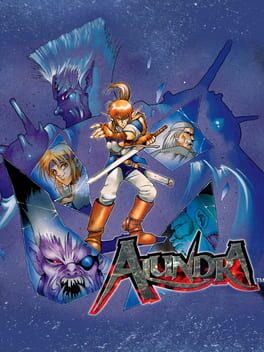Shenobi
1998
The premier survival horror escape simulator, with a monster AI that was surprising and engaging and rather unmatched for the style of game until Alien: Isolation came around. I don't know if the game wasn't finished or what, but there were many items that had no purpose I was aware of and some areas felt a little unfinished.
I rate this game so highly because there are defining moments in gaming where you get immersed thoroughly and the way the AI for this game ramps up from area to area despite how basic it was for its time meant and still means a lot to me.
I rate this game so highly because there are defining moments in gaming where you get immersed thoroughly and the way the AI for this game ramps up from area to area despite how basic it was for its time meant and still means a lot to me.
This game was terrible about giving logical guidance and there was an exorbitant amount of grinding required to progress reasonably. That being said, the dungeons were a good time (although unfairly difficult in some respects, especially with the fake walls) and the soundtrack was one hell of a jam. Prossession of pieces of Dracula never felt so good.
1989
A regretful abandonment in this case -- I somehow stumbled upon a bug in this game that crippled my ability to play the game reasonably anymore. Essentially, I had been running from fights that were either too easy or just frustrating and not worth the time for awhile and had built up an unusually high counter value for running.
I don't know if the bug is relative to that value, but when I was at sea, there was a point where I would start getting encounters every couple seconds and it was physically impossible to run from any of them anymore -- not because I'd taken advantage of the ! feature and was incapable of running. These were prompts that I should have been able to run from that would drop me right into battle without any hesitation, and with about ten times the frequency of the encounter-plagued sea travels of Suikoden IV.
The rest of the game up to that point had actually been fairly fun, but I'll probably never play this again. A shame.
I don't know if the bug is relative to that value, but when I was at sea, there was a point where I would start getting encounters every couple seconds and it was physically impossible to run from any of them anymore -- not because I'd taken advantage of the ! feature and was incapable of running. These were prompts that I should have been able to run from that would drop me right into battle without any hesitation, and with about ten times the frequency of the encounter-plagued sea travels of Suikoden IV.
The rest of the game up to that point had actually been fairly fun, but I'll probably never play this again. A shame.
1979
1992
2012
This game might actually be pretty good -- I loved the first Xillia game. I just don't like having a silent protagonist, given how much personality Tales characters typically bring to the table. Emoting responses occasionally in one direction or the other just isn't good enough for me to get into this game. That being said, I might come back to it at some point anyway.
Some of the power-up ideas in this game are brilliant and the Ikaruga-esque combat style of element-swapping to absorb damage and gain back MP is fun and makes for some excellent boss designs.
The arrow puzzles are a little off-putting, though -- not because they're particularly bad (other than one section late in the game that's mandatory), but because they kinda detract from the action-centric feel of the game. I appreciate trying to find a way to incorporate Deedlit's archery skills, but maybe have the bows do more with their arrows based on the bow type (a few bows fire more arrows or use homing arrows as examples). Players should be encouraged to use the bow, but aside from the mandatory puzzles or optional ones, there's no real need to use the bow.
The game's a little on the short side and enemies are a mixed bag, ranging from complete pushovers to absolutely obnoxious depending on their placement in rooms (looking at you, Mummy Masters alongside those flying gargoyles with both of you immune to opposite elements). For the most part though, enemies are just a very poor-paying XP obstacle on your way to bosses.
I won't speak on the boss design, other than to say that the difficulty range is all over the place, but I still approve of them for the most part. There's some really fun ideas at play in there and I would liked to have seen a bit more gameplay length to maybe offer a few more creative boss ideas on top of what was already there. Some moves are shared between bosses, but that didn't really bother me.
Overall, the game is fun but very short -- I clocked about 7.5 hours with nearly all rooms explored. Definitely worth checking out at least once but if Metroidvanias aren't your thing, consider waiting for a sale -- it's a solid one, but it's not a must-buy for your average gamer who just wants to check out a random given game.
The arrow puzzles are a little off-putting, though -- not because they're particularly bad (other than one section late in the game that's mandatory), but because they kinda detract from the action-centric feel of the game. I appreciate trying to find a way to incorporate Deedlit's archery skills, but maybe have the bows do more with their arrows based on the bow type (a few bows fire more arrows or use homing arrows as examples). Players should be encouraged to use the bow, but aside from the mandatory puzzles or optional ones, there's no real need to use the bow.
The game's a little on the short side and enemies are a mixed bag, ranging from complete pushovers to absolutely obnoxious depending on their placement in rooms (looking at you, Mummy Masters alongside those flying gargoyles with both of you immune to opposite elements). For the most part though, enemies are just a very poor-paying XP obstacle on your way to bosses.
I won't speak on the boss design, other than to say that the difficulty range is all over the place, but I still approve of them for the most part. There's some really fun ideas at play in there and I would liked to have seen a bit more gameplay length to maybe offer a few more creative boss ideas on top of what was already there. Some moves are shared between bosses, but that didn't really bother me.
Overall, the game is fun but very short -- I clocked about 7.5 hours with nearly all rooms explored. Definitely worth checking out at least once but if Metroidvanias aren't your thing, consider waiting for a sale -- it's a solid one, but it's not a must-buy for your average gamer who just wants to check out a random given game.
2005
1994
There might be something really good here but the game feels like a slog at times. Every scene transition is several seconds long (including to and from battle) and battles feel really slow.
Although leveling might make a difference, it feels like smithing your weapons is more important than levels (other than extra HP). Might go back to it again someday, but as it stands, I'd rather play through some other games in my backlog ahead of this.
Although leveling might make a difference, it feels like smithing your weapons is more important than levels (other than extra HP). Might go back to it again someday, but as it stands, I'd rather play through some other games in my backlog ahead of this.
2006
2021
This review contains spoilers
I didn't want to write a review on this until I made substantial progress in the postgame. This game is very specific in who it caters to, and that essentially is anyone who wants to try and do teambuilding with monsters with tweaks to the most minute of details in order to overcome future issues.
It excels at this.
It's quite a grindfest in terms of how important every single resource ends up being for everything. At the same time though, the game will reward you even in failure because levels gained on a floor where you perish stay with you, resources gained stay with you, knowledge gained from enemies defeated, favor from gods, and so on.
And you need them, because once you get far enough in the postgame, you're rewarded with what is essentially more postgame, and then EVEN MORE postgame. I think you hit accessibility to about 99% of stuff around floor 415, which is staggering to think about when the regular portion of the game ends at floor 63.
Siralim Ultimate encourages you to explore different fusions for your teams, different specializations to overcome issues, or just trying to find that one strategy that seems to cover enough bases that you can persist in spite of your shortcomings (for me, it was playing Pyromancer with an auto-spellcasting team that would just buff themselves while debuffing the enemy so the enemy would never get a turn).
If you're a completionist that wants to acquire all the achievements in the game, you should avoid this game like the plague because it will demand your commitment to it. For reference, I put in several hundred hours into the game and am somewhere around floor 600, but one of the achievements asks you to visit realm 10000. A number of achievements also ask for damage dealt/received or stats lowered or raised to reach a total of 1 OCTILLION points. As of where I stopped at in the game, I think only one of those values was close to a trillion, which is a far sight from an octillion.
So yeah, the game is a grindfest, but its fun lies in what you want out of it. If you want to try and play mad scientist and build lots of crazy combinations of monsters or just to try and find a team that will break the game in some way after dealing with fusions, artifact socketing, spells, relics, and anointments to add to your specializations, you're in for a treat. Between nether bosses with different behaviors over three encounters, gods, and false gods, you're looking at near a couple hundred boss fights you can get some mileage from just in the postgame.
If grinding and experimentation of that nature are NOT your thing, just move on. I think this game did an excellent job at letting players grind and test their way to a great time, but it's definitely a niche game, no matter how well it did what it set out to do.
It excels at this.
It's quite a grindfest in terms of how important every single resource ends up being for everything. At the same time though, the game will reward you even in failure because levels gained on a floor where you perish stay with you, resources gained stay with you, knowledge gained from enemies defeated, favor from gods, and so on.
And you need them, because once you get far enough in the postgame, you're rewarded with what is essentially more postgame, and then EVEN MORE postgame. I think you hit accessibility to about 99% of stuff around floor 415, which is staggering to think about when the regular portion of the game ends at floor 63.
Siralim Ultimate encourages you to explore different fusions for your teams, different specializations to overcome issues, or just trying to find that one strategy that seems to cover enough bases that you can persist in spite of your shortcomings (for me, it was playing Pyromancer with an auto-spellcasting team that would just buff themselves while debuffing the enemy so the enemy would never get a turn).
If you're a completionist that wants to acquire all the achievements in the game, you should avoid this game like the plague because it will demand your commitment to it. For reference, I put in several hundred hours into the game and am somewhere around floor 600, but one of the achievements asks you to visit realm 10000. A number of achievements also ask for damage dealt/received or stats lowered or raised to reach a total of 1 OCTILLION points. As of where I stopped at in the game, I think only one of those values was close to a trillion, which is a far sight from an octillion.
So yeah, the game is a grindfest, but its fun lies in what you want out of it. If you want to try and play mad scientist and build lots of crazy combinations of monsters or just to try and find a team that will break the game in some way after dealing with fusions, artifact socketing, spells, relics, and anointments to add to your specializations, you're in for a treat. Between nether bosses with different behaviors over three encounters, gods, and false gods, you're looking at near a couple hundred boss fights you can get some mileage from just in the postgame.
If grinding and experimentation of that nature are NOT your thing, just move on. I think this game did an excellent job at letting players grind and test their way to a great time, but it's definitely a niche game, no matter how well it did what it set out to do.
1997
Felt like a weaker Zelda-esque game with solid graphics for its time. The opening FMV is awesome, if nothing else. Overall, it kinda made me imagine what would happen if you combined Soul Blazer for the SNES with A Link to the Past...which sounds like a good thing, but ultimately wasn't a great thing for me.
